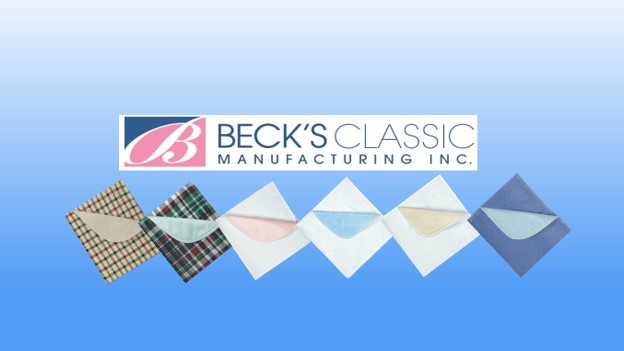When it comes to managing incontinence, many people are introduced to disposable products first. But what if there were a better, more sustainable, and more comfortable option? Reusable incontinence supplies—especially underpads—are gaining momentum among patients, caregivers, and healthcare providers for good reason. They offer a smarter long-term solution that balances performance, comfort, and environmental impact.
Let’s explore why reusable incontinence products are becoming the preferred choice for many.
The Sustainability Advantage
One of the most compelling reasons to consider reusable incontinence supplies is their environmental benefit. Traditional disposable products contribute significantly to landfill waste. The average person managing incontinence may use multiple pads daily—adding up to thousands of single-use items per year.
Reusable underpads are designed to be laundered and reused hundreds of times. That means:
- Less waste in landfills
- Lower carbon footprint over time
- A significant reduction in plastic and packaging use
In short, reusable products help protect the planet—without compromising performance.
Cost-Effective Over Time
While disposables may seem more affordable initially, the costs add up quickly. Reusable underpads require a higher upfront investment, but they offer significant savings over time.
For example:
- One high-quality reusable pad can last 150–200 wash cycles
- Patients and caregivers can spend less on replacements
- Bulk laundering (at home or in facilities) reduces per-use costs
Durable construction ensures these products maintain their effectiveness through repeated washing, making them a wise long-term choice. For people managing incontinence daily, this can add up to hundreds or even thousands of dollars saved annually. For eco-conscious patients, caregivers, and facilities, this shift can make a measurable impact.
Enhanced Comfort and Skin Health
The benefits of resuables has been studied and proven for years. A randomized, multi-center clinical trial involving 107 patients across hospitals, home-health agencies, and skilled nursing centers compared reusable underpads to disposables. Results showed that reusable pads performed significantly better in keeping skin, clothing, and bedding dry, reducing fluid pooling, and increasing patient comfort.
Comfort is more than a luxury—it’s essential for anyone managing incontinence. Unlike some stiff or crinkly disposable pads, reusable underpads often feature:
- Soft, breathable top layers that feel gentle against the skin
- Advanced moisture-wicking fabrics that keep users dry
- Quilted, stay-in-place designs for better sleep and mobility
These features help reduce the risk of skin irritation, pressure sores, and general discomfort, especially for individuals with sensitive or aging skin. Comfort plays a major role in sleep quality, confidence, and overall well-being—making reusable products an excellent option for both day and night use.
Smart for Patients, Caregivers, and Facilities
Reusable incontinence supplies aren’t just for home use. They’re widely adopted in:
- Hospitals and rehabilitation centers
- Skilled nursing and assisted living facilities
- At-home care for older adults or those with mobility challenges
These products are ideal for healthcare environments where consistent performance, comfort, and cost-efficiency are critical.
Switching to reusable incontinence supplies might seem like a small change, but the benefits are substantial—for your wallet, your health, and the environment.
With a wide range of sizes, absorbency levels, and product types available—from underpads to washable briefs—patients can find a personalized solution that fits their needs and lifestyle.
Ready to Make the Switch?
Incontinence care doesn’t have to be wasteful, expensive, or uncomfortable. Reusable incontinence products offer a thoughtful, proven alternative that supports personal dignity, skin health, and environmental responsibility.
For anyone navigating incontinence—whether personally or professionally—these products are worth considering as part of a long-term care strategy.
Whether you’re managing incontinence yourself, caring for a loved one, or overseeing supplies for a healthcare facility, choosing reusable underpads is a step toward better care and better outcomes.
Contact Beck’s Classic Manufacturing to:
- Learn which product is right for you
- Find a dealer or distributor near you
- Get guidance on insurance coverage or bulk orders
Email: info@becksclassic.com

This article was developed in partnership with, and sponsored by, Becks Classic. NAFC collaborates with select partners to bring our community information and resources that support bladder and bowel health.







2 Responses
Would like to know more.
Please send information about your products and how to order and what’s the cost – thanks